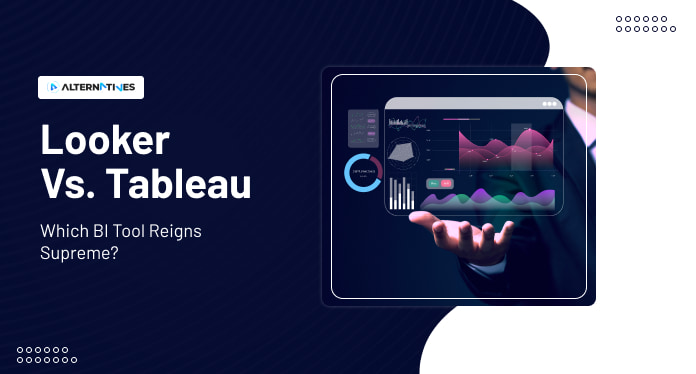Freshsales vs. Hubspot: A Detailed Comparison

In the dynamic world of customer relationship management (CRM), Freshsales and HubSpot have emerged as two leading contenders. These platforms are designed with the intent to streamline business processes, nurture customer relationships, and catalyze sales growth. However, with each offering a unique set of features and functionalities, businesses often find themselves in a quandary when trying to decide which platform suits their needs best. Hence, we’re embarking on a detailed comparison between Freshsales and HubSpot to help your organization make an informed decision.
This comparative study will delve into crucial aspects such as pricing structure, user interface evaluation, customer support services, marketing automation capabilities, integration flexibility, sales and lead management tools, reporting and analytics features, and customization options offered by both platforms. The objective is not just to highlight the similarities or differences but also to guide you in understanding how these distinctions could potentially impact your business's CRM strategy. Let’s dive deeper into this tech-driven comparison that aims to nourish your subconscious desire for innovation.
Overview Of CRM Platforms
Let’s dive into the world of CRM platforms, illuminating their features and functions to better understand their role in successful business operations.
Customer Relationship Management (CRM) systems are pivotal tools that streamline managing interactions with current and future customers. They organize information about all your business relations, including partners, suppliers, or anyone else crucial to your organization. This holistic approach helps businesses foster stronger relationships by understanding customer needs and enhancing communication efficiency.
One such critical feature is platform efficiency which refers to how well a system can manage multiple tasks simultaneously without hindering performance. In today's fast-paced digital environment, time is an invaluable asset; thus, having an efficient CRM platform ensures quick task execution saving valuable time for other important activities.
Security features also play a paramount role especially when handling sensitive data such as client details or financial transactions. A robust CRM system should offer secure encryption methods and adherence to global security standards ensuring protection against potential cyber threats.
Mobile accessibility has become increasingly vital due to the growth of remote work culture and on-the-go availability demand from employees. A good CRM platform offers mobile applications with similar functionalities compared to desktop versions enabling users to access necessary data at any given moment regardless of location constraints.
Data import/export functionality allows easy migration of existing data into the new CRM system or exporting it for analysis purposes providing flexibility in handling vast amounts of information efficiently.
Lastly, team collaboration is another essential attribute offered by most CRMs that enhances productivity through shared calendars, project management tools, instant messaging, etc., fostering a cohesive workspace irrespective of geographical boundaries.
Pricing Structure
Diving into the pricing structure, it’s crucial to understand how each platform measures up in terms of cost-efficiency and value.
Freshsales pricing model offers a more budget-friendly solution for startups and small businesses with their subscription models starting from $12 per user/month when billed annually. This package includes email, phone, and chat support along with essential features like lead scoring, web activity tracking, and more.
On the other hand, HubSpot’s pricing starts at $18 per user/month, which is considerably higher but comes packed with robust marketing automation tools and comprehensive customer service solutions.
Incorporating our annual cost comparison between these two platforms gives us a better understanding of their direct financial impact on an organization. Here’s a simple breakdown:
| Platform | Cost/User/Month | Annual Cost |
| Freshsales | $12 | $18/month (Billed Annually) |
| HubSpot | $18 | $216 |
This table clearly shows that Hubspot costs four times as much as Freshsales for ten users annually. However, this doesn’t mean that one is superior to the other; it merely points out the initial investment required.
Considering hidden charges investigation can also be illuminating in assessing both CRM's true cost-effectiveness analysis.
While Freshsales’ transparent billing system has no hidden fees or additional costs outside your chosen plan, HubSpot does charge extra for certain premium features and integrations not included in standard plans – something worth noting before making a final decision based on Budget considerations alone.
So while FreshSales might seem like an attractive option due to its low upfront price tag compared to HubSpot’s offering initially, organizations need to consider what kind of functionality they require from their CRM to ensure they’re getting the most bang for their buck.
User Interface Evaluation
Moving forward, our evaluation takes a turn towards the user interface of these platforms, as we delve into the ease of navigation and overall user experience that they offer.
Freshsales scores highly in terms of Interface Simplicity, boasting an intuitive design with self-explanatory features that save users from extensive manual browsing. Its dashboard is well-organized and visually pleasing; it’s designed for maximum Navigation Efficiency allowing users to easily locate what they need within just a few clicks. The visual appeal of Freshsales’ interface is quite commendable too – it sports a modern look with sharp icons and clear labels.
HubSpot, on the other hand, offers a more comprehensive but slightly complex User Interface compared to Freshsales. It provides numerous tools and functionalities which can initially appear overwhelming due to its intricate Dashboard Design, yet after overcoming the initial learning curve, many find HubSpot's platform extremely robust and versatile. While this does require some time investment upfront, those who are willing to learn will be rewarded with a powerful suite of marketing tools at their fingertips.
In terms of User Experience, both platforms have their strengths and weaknesses. With Freshsales' straightforward layout and minimalistic aesthetic approach, beginners may feel more comfortable navigating through its settings and options.
On the flip side though, advanced users might appreciate HubSpot’s wide range of capabilities despite its complexity since it allows for greater customization according to specific business needs – something that reflects innovation at its core.
Ultimately, while both platforms are equipped with incredible features aimed at enhancing customer relationship management efficiency each caters best to different types of businesses based on their unique requirements.
Customer Support Services
In this section, we will explore the critical realm of customer support services, shedding light on how these platforms stand out in providing assistance and resolving queries for their users.
Freshsales provides a comprehensive range of customer service channels including chat assistance, email support, and phone support to ensure that its clients are well-served at all times. They also provide an extensive knowledge base with articles and tutorials to help customers troubleshoot common issues independently.
On the other hand, HubSpot offers similar types of communication options but adds social media channels as part of their available contact methods. Additionally, they offer self-service options where customers can access resources like guides and video walkthroughs.
To give you a clearer picture of what each platform offers in terms of customer support services, let’s take a look at this table:
| Platform | Support Channels | Self-Service Options |
| Freshsales | Chat Assistance, Email Support, Phone Support | Knowledge Base (articles & tutorials) |
| Hubspot | Chat Assistance, Email Support, Phone Support, Social Media Channels | Guides & Video Walkthroughs |
This comparison table shows us that both CRM platforms have made substantial efforts to equip their users with various means to resolve any arising problems or doubts about system usage. However, it is important to note that while both systems use chat assistance and ticketing systems effectively for real-time problem-solving; HubSpot edges slightly ahead due to its integration with popular social media channels which makes it more accessible for certain user demographics.
Lastly, when comparing Freshales and HubSpot's self-service options there is little difference between them as both provide robust resources such as a well-stocked knowledge base filled with articles on commonly faced issues along with detailed solutions. Nonetheless, Hubspot does take an extra step by offering video walkthroughs which might be preferred by some users who find visual content easier to understand than text-based materials.
Ultimately, whether one chooses Freshsales or Hubspot, they can rest assured that their needs will be well taken care of through a variety of customer support services.
Marketing Automation Capabilities
As we venture into the realm of marketing automation capabilities, we will unravel the intricate features and functions that these CRM platforms offer to streamline and enhance your marketing efforts.
Freshsales and HubSpot both provide a host of tools designed for automating repetitive tasks in marketing while keeping customers engaged with personalized outreach. Both platforms allow marketers to set up workflows based on customer behavior or other trigger events, reducing manual labor and enabling constant engagement.
In terms of Email Campaigns, Freshsales just like its other alternatives offers clean templates and A/B testing options for optimizing open rates. However, it lacks advanced segmentation like HubSpot which allows you to send targeted emails based on specific user behaviors.
When looking at Social Media Automation, Freshsales provides basic posting functionality but doesn’t offer as robust scheduling or analytics as seen in HubSpot’s suite.
Behavioral Tracking is another area where differences emerge: While Freshsales does offer lead scoring based on tracked interactions, HubSpot takes it further with its predictive lead scoring feature using AI technology.
Drip Campaigns are essential for nurturing leads over time through automated email sequences; both platforms shine here yet again with slight differentiation -Freshsales focuses more on simplicity whereas Hubspot emphasizes customization flexibility.
Lastly, when it comes to Landing Page Creation, while both have built-in editors, HubSpot's editor stands out for its easy-to-use interface packed full of customizable modules allowing businesses to create unique pages without needing any technical expertise.
Integration Flexibility
Let’s now pivot to explore the flexibility of integration each platform offers, a critical aspect that can significantly impact your business operations and overall marketing efficiency.
Both Freshsales and HubSpot are renowned for their robust API connectivity, allowing users to integrate with various third-party applications seamlessly. This feature not only enhances software compatibility but also fosters cross-platform flexibility, enabling businesses to streamline their workflow across different digital environments. While both platforms support popular integrations such as G Suite, Microsoft 365, Slack, etc., HubSpot offers more extensive options including Salesforce and Shopify among others.
Freshsales stands out when it comes to mobile app integration; its comprehensive CRM is available in an easy-to-use mobile format compatible with iOS and Android devices. The mobility allows sales teams on-the-go access to customer data anytime anywhere which facilitates quicker decision-making processes. On the contrary, while similar to its competitors Hubspot does offer a mobile version of its services too, user feedback suggests it isn't as dynamic or intuitive as what you'll find with Freshsales.
Lastly, we examine how well these platforms interact with other software systems within your tech stack.
In terms of software compatibility and ease of integration into existing workflows, HubSpot excels due to its wide range of APIs and developer resources that simplify system interlinking. Consequently, if your organization utilizes numerous tools requiring intricate connections between them all HubSpot may be the better choice over Freshsales. However, this doesn’t imply that Freshsales falls short it has powerful enough capabilities to cater to most small-medium-sized businesses’ needs justifying why they’re highly regarded in the market sphere today.
Sales And Lead Management
Delving into the realms of sales and lead management, we find that these two platforms offer unique functionalities designed to empower businesses in their pursuit of maximizing customer acquisition and retention.
Freshsales brings a fresh perspective on lead conversion strategies with its predictive scoring feature that prioritizes leads based on historical data, allowing your team to focus resources on high-potential customers. On the other hand, HubSpot sets itself apart with robust prospect nurturing techniques aided by personalized email sequences and follow-up reminders ensuring no prospects fall through the cracks.
Moving further along the lines of comparison, sales funnel optimization is another critical area where both platforms excel but in different ways. Freshsales uses AI-driven insights for intelligent pipeline management which helps identify bottlenecks and streamline stages leading to improved conversion rates.
Conversely, HubSpot offers an intuitive visual dashboard providing real-time insight into your sales funnel enabling rapid adjustment of strategies as market dynamics shift. Lastly, when it comes to customer segmentation methods and sales team training, both tools provide compelling options.
Freshsales allows you to segment customers based on several attributes including behavior patterns thus facilitating targeted marketing efforts whereas Hubspot’s smart lists enable dynamic segmentation based on preset or custom conditions.
For sales team training purposes, Freshsales provides a comprehensive knowledge base and learning resources while Hubspot shines with its reputed inbound marketing certification courses offering a deep dive into modern sales techniques. Both platforms are ahead of the curve proving they’re not just about managing contacts but more about strategizing successful business growth.
Reporting And Analytics Features
Turning our attention to the realm of reporting and analytics features, we find that these platforms offer a wealth of insightful tools designed to empower businesses in their strategic decision-making processes.
Freshsales provides robust data visualization capabilities with customizable dashboards that allow users to create visual reports from raw sales data. It boasts an intuitive interface where one can drag and drop elements for tailored report generation.
In contrast, HubSpot excels in real-time reporting, enabling immediate access to key metrics and KPIs as they occur. This feature is particularly beneficial for teams who need up-to-the-minute information on campaign performance or customer behavior.
Freshsales offers advanced predictive analysis capabilities, using artificial intelligence technology to generate accurate forecasts based on historical data. HubSpot’s Metrics Tracking feature allows you to monitor your marketing and sales efforts effectively, providing detailed insights into what strategies are working best. Both platforms offer comprehensive actionable insights derived from extensive data sets, empowering companies to make informed decisions.
While Freshsales focuses more on generating custom reports through its powerful dashboard, HubSpot stands out when it comes to tracking individual user activities across various touchpoints. Real-time Reporting by HubSpot enables quick reactions and adjustments while Freshsales' Predictive Analysis helps anticipate future outcomes for proactive strategy planning.
On a closer look at both platforms’ specific strengths: Data Visualization shines brightly among Freshsales’ offerings; this tool not only presents complex information in a digestible way but also facilitates easy sharing of these findings throughout the organization.
On the other hand, Hubspot’s prowess lies in its ability to provide granular-level details about customer interactions across different channels via its superior Metrics Tracking system. These minute insights enable marketers and salespeople alike to understand their audience better and tailor their approach accordingly.
Ultimately, the choice between Freshsales vs HubSpot would depend largely upon which form of insight – macro or micro – holds greater value for your business operations aiming towards innovation-driven growth.
Customization Options
Moving forward, we pivot our focus to explore the diverse customization options that these platforms offer, allowing them to tailor their functionalities to meet the unique needs of your business.
Freshsales shines in providing a high degree of workflow personalization, which allows businesses to customize sales processes and automate tasks according to their specific requirements. This feature adaptability extends across multiple facets including lead scoring rules, email templates, and custom views for deal pipelines, among others.
HubSpot also offers robust customization features with a more intuitive interface; however, its higher-end plans are required for access to advanced customization capabilities.
User experience is another critical dimension where customization plays an integral role. Both Freshsales and HubSpot provide clean and user-friendly interfaces but differ in terms of adaptability based on user preference.
For instance, Freshsales lets you personalize dashboards by arranging widgets according to individual preferences while Hubspot enables users to create custom reports and dashboard views effortlessly. These personalized settings enhance user engagement by delivering tailored solutions that align closely with the daily workflows of different team members.
Platform scalability should not be overlooked when discussing customization abilities. As your business grows over time, so too should your CRM platform’s ability to accommodate this growth seamlessly without compromising performance or functionality.
In this regard, both Freshsales and HubSpot demonstrate significant scalability potential by offering various tiered pricing models catering to startups right up through large enterprises. Moreover, they support third-party integrations enhancing their capability pool and adapting to changing operational demands a factor crucial in today's ever-evolving digital landscape.
Review Of Freshsales And Hubspot
Let us now embark on a comprehensive analysis of the individual features, pros, and cons of each platform to provide you with an in-depth understanding that will guide your decision-making process.
When we look into the review of Freshsales, it is known for its ease of use and implementation experience. It has user-friendly navigation controls and a sleek interface that users appreciate. The platform also offers robust software security measures and timely product updates which ensure it remains at par with current market demands.
Similarly, diving into HubSpot's review, this tool excels in enterprise scalability, offering solutions that can grow with your business needs over time. Its powerful automation tools have been hailed as game-changers by many users.
1) Implementation Experience: Users across the board commend Freshsales for its simple setup process compared to HubSpot’s more complex one.
2) Software Security: Both platforms prioritize data protection but Freshsales takes the upper hand due to its high encryption levels.
3) Enterprise Scalability: While both are scalable, Hubspot stands out because of its ability to support larger organizations efficiently.
Training resources available for both platforms differ significantly too. Freshsales provides extensive documentation and tutorials online while HubSpot goes further by providing a dedicated academy complete with certification programs. This not only empowers their customers but builds brand loyalty too.
In terms of pricing plans, both offer tiered subscriptions based on the functionalities required thereby ensuring they cater to businesses of all sizes without compromising quality or performance.
Ultimately, whether you opt for Freshsales or HubSpot largely depends on what suits your specific organizational needs best – be it the simplicity and intuitive design offered by Freshsales or the advanced marketing capabilities provided by HubSpot.
Regardless of the choice made though, rest assured that both come packed with innovative features designed with today's tech-savvy business environment in mind thus guaranteeing value addition every step along your CRM journey!
Frequently Asked Questions
1. Are There Any Potential Challenges Or Limitations Associated With Using Freshsales And Hubspot?
Both Freshsales and HubSpot have their own potential challenges. Users have reported that Freshsales can be less user-friendly with a steeper learning curve, which may affect the onboarding process. It also has fewer integration capabilities compared to HubSpot. On the other hand, although HubSpot offers higher quality customer support, its pricing structure is more complex and often costlier. Also, some users find its user interface overwhelming due to its numerous features.
2. How Does Each Platform Handle Data Security And Privacy?
Both Freshsales and HubSpot prioritize data security and privacy. They employ data encryption methods to protect information during transmission, have detailed privacy policies in place, and respond promptly to any security breaches. Both platforms adhere to compliance standards like GDPR. Moreover, they offer features for managing user permissions to control access to sensitive information within your organization.
3. What Are The System Requirements For Running Freshsales And Hubspot Optimally?
Both Freshsales and HubSpot are cloud-based systems, meaning they can run on any device with an internet connection. They do not have specific system requirements as traditional software does. However, for the best user experience, ensure your device is updated to the latest browser versions and has a stable internet connection. Both platforms also offer technical support in case you encounter issues.
4. Can Freshsales And Hubspot Accommodate The Needs Of A Rapidly Scaling Business?
Both Freshsales and HubSpot are scalable solutions designed to grow your business. They offer various pricing levels, customization options, and integration capabilities that can be tailored as per your needs. Both platforms also provide robust customer support and training resources for smooth scaling.
5. How Frequently Does Each Platform Roll Out Updates And New Features?
Both Freshsales and HubSpot frequently roll out updates and new features. While there’s no standard timeline, the update frequency for both platforms is typically every few months. Users are notified about these updates, which often include improved functionality and new tools. Post-update support is provided to help users adapt to the changes. However, it’s always suggested to check their official websites regularly for specific information related to any recent or upcoming updates.
Conclusion
Ultimately, the Freshsales Vs HubSpot detailed comparison shows both platforms have unique strengths. Depending on your business needs and budget, either could be apt for you. However, it’s clear that there are differences in the pricing structure, user interface, customer support services, marketing automation capabilities, integration flexibility, and sales and lead management features. Moreover, reporting and analytics as well as customization options vary between these two CRM systems. It is therefore crucial to closely consider all these factors before deciding which platform best suits your company's requirements.



